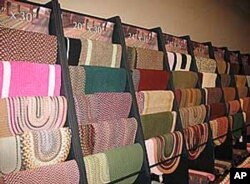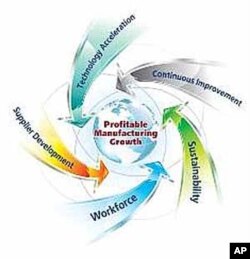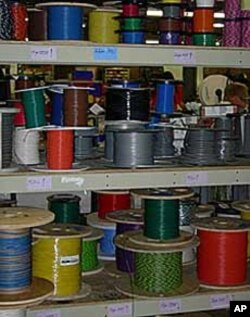Almost a century ago, in 1914, the U.S. Congress set up a network of county agricultural agents who showed small farmers how to modernize their methods. This Agricultural Extension Service helped make American farms the most productive in the world.
Planners soon put this idea to work in industry. They set up an elaborate manufacturing extension service that helped turned their agrarian nation into a dominant industrial power.
That nation was not the United States. It was Japan. A network of 170 regional technical centers called Kohsetsushi sent out experts to help Japan's 875,000 small, industrial companies to modernize.
Not until 1989 did the U.S. government stir and begin to build a nationwide manufacturing extension network of its own.
Now that network, called the Manufacturing Extension Partnership under NIST - the National Institute of Standards and Technology - is going strong. It supports industrial extension centers in every state and Puerto Rico. More than 400 all told.
Based at state universities and nonprofit consulting agencies, these centers are more problem solvers and efficiency experts than renowned pipefitters or notable technicians.
An example is the Industrial Extension Service at North Carolina State University in the capital city, Raleigh. With funding from the state and federal government, and from fees charged to clients, it advises Carolina furniture manufacturers, pharmaceutical and medical firms, and other companies how to achieve what it calls lean manufacturing.
Reaching that goal involves cutting inventory, improving on-the-job training and communications, and putting technology that has been successful in one industry to a whole new use in another one - much as auto plants were converted to bomber factories during World War II.
In just 4½ years, clients report that North Carolina's industrial outreach program has helped them, collectively, to create goods and services worth more than $1 billion.






